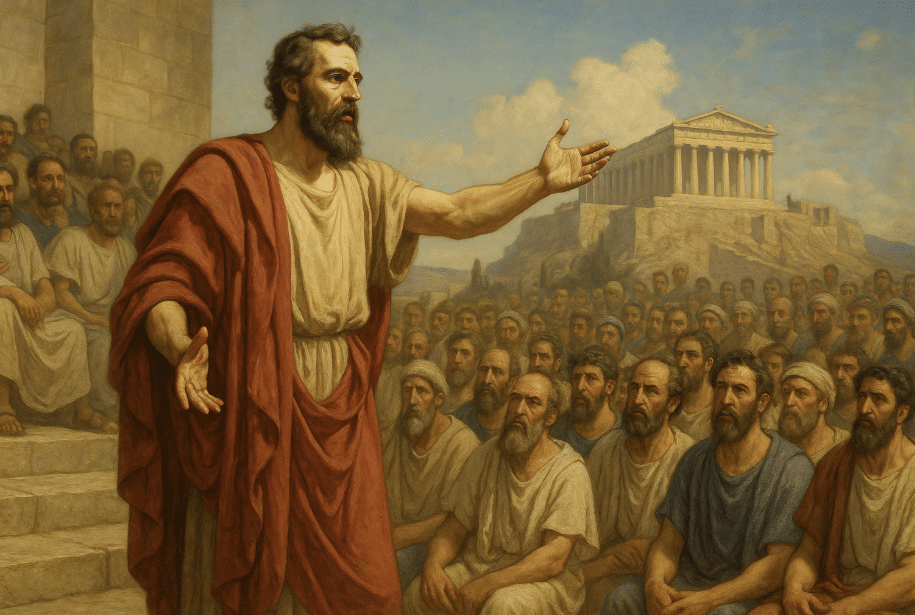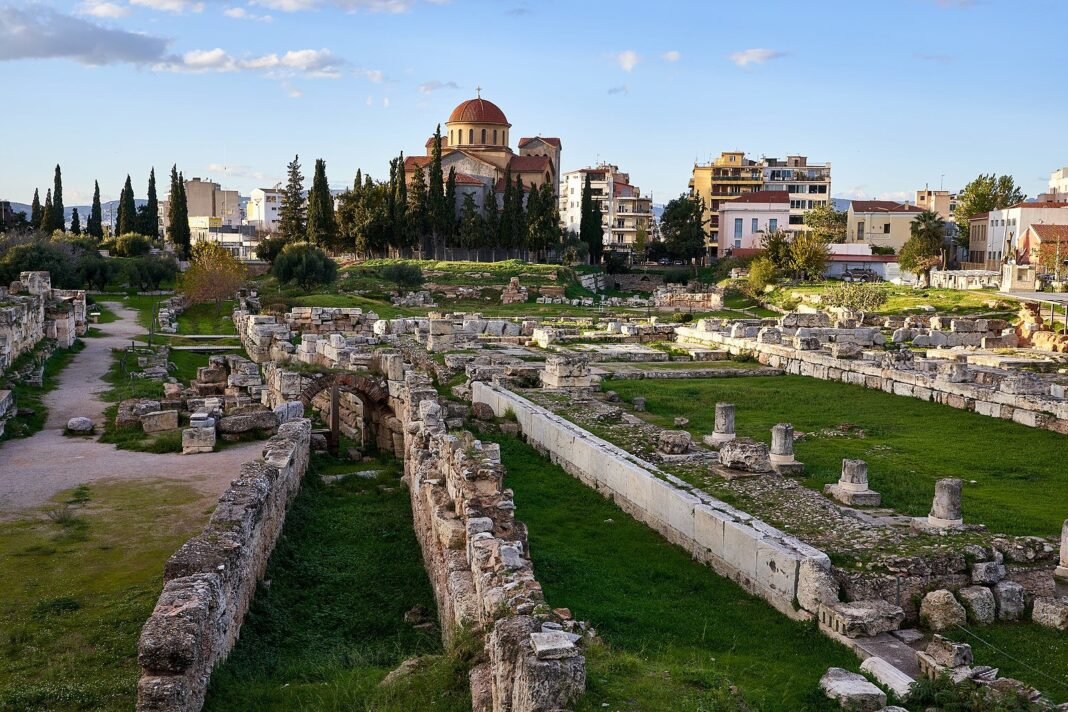
Cleisthenes played a pivotal role in shaping Athenian democracy, yet when we think of its glory, we almost immediately picture Pericles: the great statesman delivering a stirring speech to a captivated crowd. But what if we’ve been focusing on the wrong figure all along?
Long before Pericles took center stage in Athenian politics, the system we celebrate today for its innovation was crafted by someone history rarely credits enough. Cleisthenes laid the foundations of the democratic system that would transform the city—and the world.

Cleisthenes tried to instill order where chaos reigned
Imagine Athens at the end of the sixth century BC. The city was riven by internal divisions, with feuding clans and regional factions dominating political life. Ordinary Athenians owed their loyalty not to the city but to their families and tribes. While this may seem harmless, it left the city vulnerable to infighting and to tyrants who seized opportunities to amass power for themselves.
Into this chaos stepped Cleisthenes—an aristocrat who chose to bet on the people rather than on a system that could have benefited him personally or his family. He took the initiative even though he didn’t have to.
Around 508 BC, Cleisthenes proposed and implemented a solution as ambitious as it was simple in its brilliance. He dismantled the old tribal system, abolishing the four ancient groups based on Athenian bloodlines: the Geleontes (priests), Hopletes (warriors), Aigikoreis (herders), and Argadeis (craftsmen). Membership in these groups had been hereditary, determined by family descent rather than location.
In their place, he established ten new tribes based solely on geography, grouping citizens according to where they lived within the broader area of Athens. By mixing people from the coast, the city center, and the countryside, Cleisthenes was intentionally crafting a new kind of society. This radical act of social engineering encouraged Athenians to see themselves not as members of a clan but as citizens of a city. It was a revolutionary step that sidelined lineages and bloodlines, giving citizenship its first-ever meaningful role in shaping civic life.

A daring democratic vision
The genius of Cleisthenes’ reforms went far beyond a simple redrawing of the Athenian map. The system he created was designed to reshape the way Athenians thought about politics and society. He established the Council of 500, with fifty men from each of the new ten tribes chosen by lottery to serve for one year.
This innovation broke the monopoly of the wealthy and powerful over government, creating a genuine opportunity for ordinary farmers or craftsmen to participate in running the city and shaping the future of the state. The system fostered a new sense of civic identity and cultivated politically active citizens.
Cleisthenes also introduced ostracism, a communal mechanism allowing citizens to vote to exile anyone who grew too powerful and threatened the democratic order. It was the ultimate safeguard for Athenian democracy and a clear message that in this new Athens, no individual would ever be greater than the collective will of the people.
Of course, you won’t find a Council of 500 chosen by lottery in modern governments, and ostracism has thankfully been abandoned, yet the political foundations Cleisthenes laid are still evident today.
The core principle—that a government’s right to rule comes from its people, and that it should be a government of the people and by the people—remains the enduring imprint of his reforms. It was this stable and participatory foundation that made the Golden Age of Pericles possible. While Pericles may have been the star of that era, Cleisthenes built the foundation that allowed him to shine.


